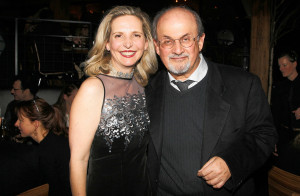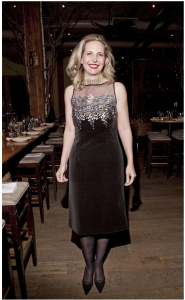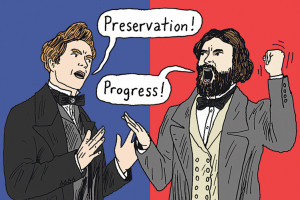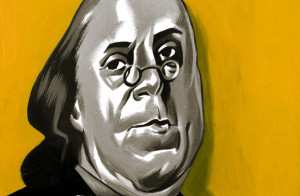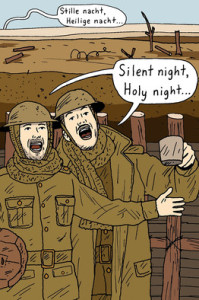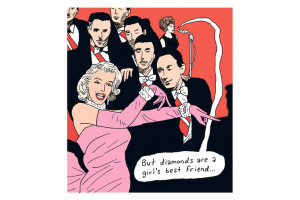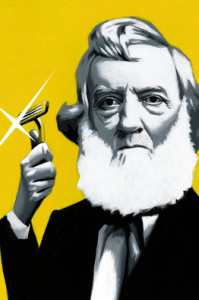By Regina Weinreich
The subject of race was addressed head on at a luncheon celebrating the film “12 Years a Slave,” easily the film of the year in an awards season gathering momentum. “I’m a black man, as if you didn’t notice, and part of the global identity of slavery” said director Steve McQueen on a panel led by Amanda Foreman at the Lotos Club on Tuesday. The director was seated between two of his stars Chitwetel Ejiofor and Lupita Nyong’o and in front of guests who included the luncheon’s host George C. Wolfe, Geoffrey Fletcher, Spike Lee, Thulani Davis, Walter Mosley, and many more of the city’s cultural and industry elite, but the context of McQueen’s remark was an answer to a question about his being a British citizen making art of a particularly American experience, and embarrassment. With family from the West Indies, he pointed out, we are all part of a diaspora, and that understanding makes the horrors of plantation life witnessed in his powerful movie all the more dreadful, and close to home no matter what your color or ethnicity.
Others attending included the actors Tovah Feldshuh, now in “Pippin,” and Nikki James, Tony winner for her work in “Book of Mormon.” James, soon returning to “Mormon,” and slated to play Eponine in the coming revival of “Les Mis,” said she had read for the part of Patsy, the love object of the cruel, psychopath plantation owner played by Michael Fassbinder. While James acknowledged that it is always a disappointment when a part goes to someone else, she admired Lupita Nyong’o’s work as Patsy, especially as this is the young actress’ first film and she was chosen fresh out of Yale. Beaten and tortured, Patsy picks cotton by day and prays for death by night. One of the most heartbreaking scenes is when Solomon (Ejiofor) leaves the plantation, a free man at last, but he leaves her, a soul mate, behind.
In many ways, the story of Solomon Northrup, based on his memoir of the same title, who, as a free man was kidnapped and sold into slavery, has a happy ending. He does return to family and loved ones. But Patsy as a character is emblematic of the huge numbers that never lived free lives. Despite the relief of seeing Solomon with a grandson named for him, the searing images of where he has been are unforgettable.
One of the movie’s producers, Dede Gardner (she’s partners at Plan B with Brad Pitt who plays a heroic role both in the film as a Canadian abolitionist, and beyond, getting the film financed and green lit) noted that one of her jobs was protecting the film, fighting the fear that the subject is not commercial, is too difficult in its most extreme violent moments. Gardner is clearly building a career with fine films that have this edge. Her current project is a movie of Larry Kramer’s “The Normal Heart” starring Mark Ruffalo and Julia Roberts. As in matters of race, the politics of the AIDS epidemic in the early 1980’s, pose questions of conscience and humanity that we are all only beginning to address.






